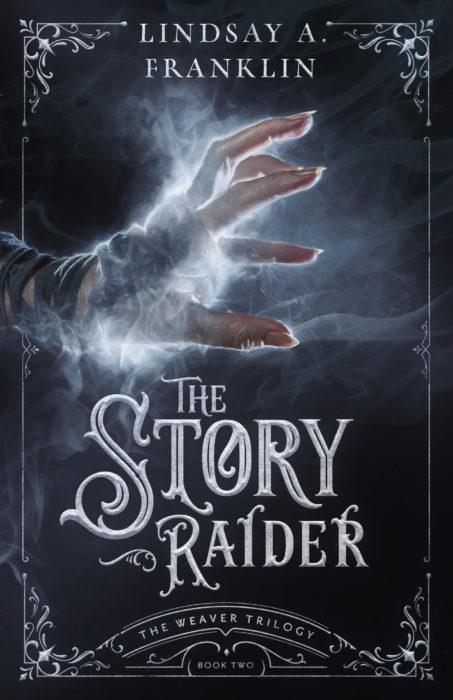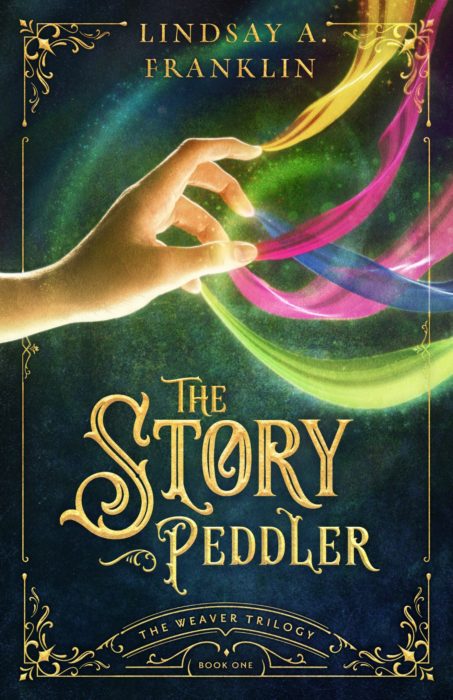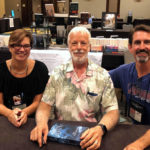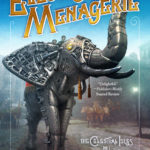Grace Through ‘The Story Peddler’ Helped Me Find Healing from Trauma
Readers of The Story Peddler have told me about its heroine, “She felt so real.”
It’s a compliment for an author, I know. And when people tell me my character felt real, or that her struggles resonated, I smile. Say thank you. And I mean it.
But I don’t always reveal the full truth in that moment—the truth that she feels real because she is real. She is me.
Not every character I write is a direct reflection of me as a person, of course. And perhaps no single character is exactly like me. But the story people I get the most comments on are the ones in which I have buried a piece of my heart—the ones I’ve chosen to help me process something dark and difficult from real life.
This may seem somewhat obvious—that authors include themselves in their work. But here’s a strange expansion of this phenomenon that’s true for me and perhaps other authors: the intersection between my writing and my true story is the sharpest, most painful, and most poignant in my fiction.
In one of my devotional books, I explored the story of Tamar and Amnon. I wrote devotionals about sexual assault, abuse at the hands of a family member, consent, agency, finding God in the midst of that particular kind of suffering, and putting the pieces of a shattered life back together through God’s grace. I have written an essay with a stark description of the first time I experienced sexual assault as a preschooler. That essay is published in a book, and my name is attached to it.
I have written about the topic of sexual trauma in a factual, straightforward manner, no holds barred, no pseudonym in which to shroud myself and no buffer with which to protect myself. It’s out there, black and white, for anyone who wishes to read about it.
So how is it that pouring this sexual trauma history into a fictional character for the first time in The Story Raider was more difficult, more taxing, and yet more healing than any writing I’ve previously done on the subject?
Story is powerful—perhaps more powerful than we realize.
 Shortly after The Weaver Trilogy was contracted, my editor and I had a discussion about the books’ titles. He loved my title for book one, The Story Peddler, and wanted each book in the series to contain the word “story.” That was the magic of the concept, after all.
Shortly after The Weaver Trilogy was contracted, my editor and I had a discussion about the books’ titles. He loved my title for book one, The Story Peddler, and wanted each book in the series to contain the word “story.” That was the magic of the concept, after all.
While we have since changed the titles of books two and three for a variety of reasons, his original suggestion for book three, The Story Thief, spawned the creation of a supporting character in my mind almost immediately. And, almost immediately, I gave her my own real-life backstory.
The particulars were different, of course. But the emotional story is the same. Her character is a bleak study on the aftereffects of prolonged sexual abuse on a young person.
And as I drafted the sequel to The Story Peddler, called The Story Raider, under intense time pressure and during a very dark season in my life, I found myself deep in the heart of this very broken character—this very broken part of me.
I recall telling my best friend that I wasn’t sure if this character was going to be okay because I wasn’t okay.
How could I possibly write something happy or hopeful or remotely uplifting while simply trying to survive the real-life emotional onslaught myself? I cried my way through her scenes in Raider, became angry with myself when her storyline in book three was just one big cloud of fog I couldn’t decipher, and wondered more than once if I had a made a mistake to include her.
But that’s where the magic happens.
Through wrestling with her story, I was given a safe place to pour out the emotional turmoil of my own story. I got to try on different futures for her—different choices, different ways of processing the trauma. I got to experience interactions with her through my other characters’ eyes, and I began to understand what watching from afar must feel like for my loved ones.
I began to desperately seek hope for my fictional girl in a way that felt too risky, too big to first seek for myself.
Within the safe confines of fiction, through the distance of story, I was able to get closer to my trauma than I ever had before. And in that closeness, my past began to knit itself together in a way I hadn’t truly believed possible. My heart began to hope again.
Book three is written now. The fictional story begun by The Story Peddler is complete. Ultimately, my character had to make her own choices, deal with her own consequences, and struggle to find herself in a journey apart from mine.
But I know that through her story and the stories of countless other characters by countless other creators, people will discover the same healing I did. That is, perhaps, the sweetest twist of all: the gift of story is not meant only for the story’s author. In fact, it is not even meant primarily for the author.
Stories exist to entertain, to teach, to welcome the reader into a wondrous space to experience an emotional journey. Through the safety and wildness of fiction, through its simultaneous distance and closeness, readers are invited to process their own triumphs and heartbreaks. These stories—all stories—are for you and me and us.
Your invitation awaits.









































I’m so sorry for what you went through. But I’m glad you found some healing in writing. My sister is actually reading the sequel right now.
Thank you, Jes. I hope your sister loves it. 🙂
I’m sorry you went through all that, and I’m glad that writing the series was therapeutic for you or at least helped you vent.
Might have to try these books some day. I really appreciate stories that authors put their whole heart into.
Lindsay,
Thank you for being brave enough to write some of your story into The Weaver series. I am convinced that this is part of what makes the stories so compelling.
Wow… I am so sorry you experienced such insane trauma. Articles like this make me wish I could just put every precious child in the world into a big home and protect them all. I’m so glad you have experienced at least partial healing through writing. I experienced something similar to this through my own writing about fatherhood (though I wasn’t abused like you). I’m picking this series up, for sure. Blessings on reaching the end of your story…
Lindsay, thank you for sharing your story through The Weaver Trilogy and everything else you have written. It’s people like you who have the bravery to share that inspire me to share as well! Your writing goes beyond the normal story…it is anointed and blessed. ?